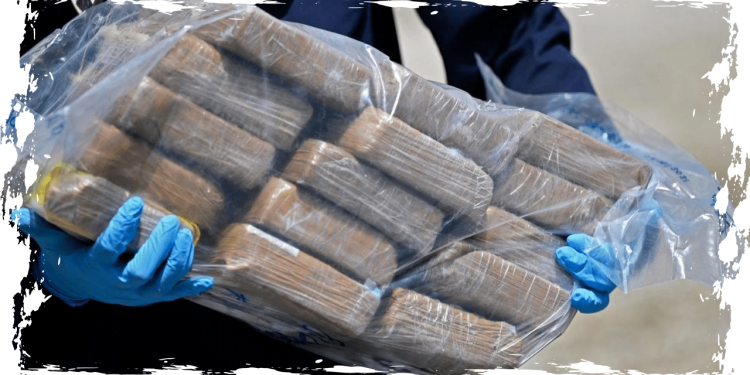El Salvadoran authorities recently destroyed a massive 2.7-ton stash of cocaine worth an estimated $67.5 million. Police in the country shared images and video of the drug pile being set alight in the town of Ilopango, located to the east of the capital city, San Salvador.
In May, a group of seven men in boats were caught with cocaine over 1,000 miles off the coast of El Salvador. The authorities arrested two Ecuadorians, two Colombians, and three Mexicans, but have not yet disclosed the specific charges that they will face.
Since President Nayib Bukele’s election in 2019, the government of El Salvador has undertaken a comprehensive crackdown on drug traffickers and gangs. President Bukele, who won a second term with an overwhelming 85% of the vote, was inaugurated on June 1. His administration has been proactive in tackling crime, and in March 2022, a state of emergency was declared, resulting in the apprehension of tens of thousands of alleged gang members.
El Salvador’s government has relocated approximately 2,000 alleged gang members from various prisons across the country to a newly constructed “mega prison” in Tecoluca, situated in the southeast of the capital city. President Bukele posted a video on social media that depicted the prisoners being escorted into the facility by heavily armed guards. In the video, Bukele vowed that the prisoners would be held accountable for the crimes they committed against the public.
According to Human Rights Watch, gang violence has been a prevalent issue in the country for several decades. The official estimate of the number of gang members in El Salvador ranges from 60,000 to 86,000. The country has had a persistently high homicide rate, which reached its peak of 105 per 100,000 people in 2015. However, it has since decreased to a historic low in 2022.
Human rights organizations have criticized the Bukele administration’s approach to combating crime, citing worries about fair legal procedures and unjustified imprisonment.
According to Amnesty International, the number of arbitrary detentions has reached over 78,000 as of February this year. This has resulted in prison overcrowding of about 148%, leading to at least 235 deaths in state custody. The organization has also documented 327 enforced disappearances.
According to Human Rights Watch, Bukele’s administration has systematically dismantled democratic checks and balances. Even though El Salvador’s constitution prohibits the immediate re-election of the president, a court decision has cleared the path for Bukele’s return.
In 2021, Bukele requested a meeting with the Biden administration, but they declined citing concerns. Additionally, the administration imposed sanctions on several of Bukele’s top aides.
It seems that the relationship between the United States and Bukele has undergone a shift, with a top-level delegation being dispatched to attend his second-term inauguration. According to The Associated Press, this change could be due to the Biden administration’s renewed focus on dealing with illegal immigration. Bukele’s public security policies in El Salvador have been praised for leading to a significant reduction in migration from the country to the U.S., with a decrease of 60% since he assumed office.










